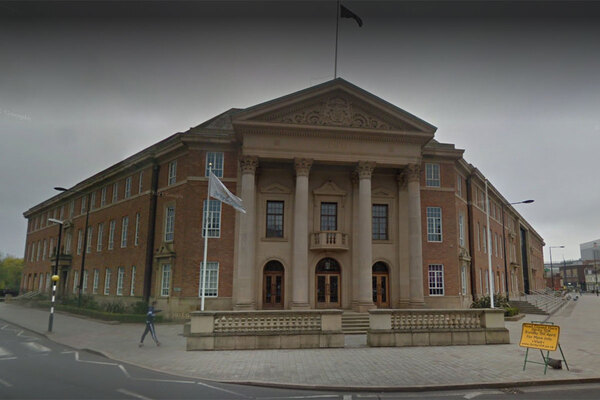You are viewing 1 of your 1 free articles
Council racially discriminated against dismissed housing officer, tribunal finds
An east London council subjected one of its housing officers to racial discrimination when refusing his application for a new role, an employment tribunal has ruled.
Barking & Dagenham Council was found to have wrongfully dismissed three housing workers during a restructure in 2017, including racial discrimination against one.
The East London Employment Tribunal said the London borough had discriminated in the assessment of the housing officer’s application for a property services role.
Muhamet Osmani, an Kosovo Albanian national who entered the UK as a refugee in 1998, had applied for the job in February 2017 following a review of the council’s housing management team.
The review saw 49 roles cut, with 30 property service roles becoming open.
The five-day liability hearing, which was carried out in October and November last year, found that the council’s head of property management, Morakinyo Otitoju, had subjected Mr Osmani to more scrutiny of his English language when marking the written assessment when compared with other applicants.
The judgement said that when questioned, Mr Otitoju was unable to prove that he had not discriminated in his marking, and his explanation of the scores he gave for the test did not make sense and were factually incorrect.
The council was also found to have indirectly discriminated against applicants who had English as their second language in the interview and written test process by not allowing applicants to use Google translate or an online dictionary for assistance throughout the process.
In response to the ruling, the council said that it did not tolerate discrimination on any grounds and had made a number of internal and structural changes since the incidents took place more than 18 months ago.
Other direct racial discrimination claims against the council by Mr Osmani, including claims that he had been mocked over his nationality and English-speaking skills, were rejected by the tribunal.
The tribunal also found that the council failed to give Mr Osmani his entitlement of 12 weeks’ notice before his termination of employment. The council informed Mr Osmani of his termination on 6 July 2017 and asked him to leave the office on 7 July.
Mr Osmani was one of three housing employees to have been found to have been unfairly dismissed by the council during their redeployment process in 2017.
The other two claimants, Sandra Darby and Cherie Rogers, were found to have been given less favourable treatment as part-time workers during the selection exercises for the property service officer roles.
According to the judgement, Mrs Darby had been subject to discrimination arising from her disability which was the reason behind her having a part-time role at the council.
A spokesperson for Barking & Dagenham Council said: “We do not tolerate discrimination on any grounds and take our obligations as an employer very seriously.
“This matter dates back 18 months and since then a number of internal structural and staff changes have taken place.
“We are currently reviewing the findings of the employment tribunal in detail to consider our position, which will include the merits of an appeal and any learning we can take from this.”
Tony Warr, head of legal at the union GMB’s London office, said: "This is a decision that should make all employers sit up and take stock of their selection procedures. On behalf of our three members, GMB Union, together with our legal team at Leigh Day solicitors, had no hesitation in supporting these most meritorious cases.”
INSIDE HOUSING’S PLEDGES
We will take proactive steps to promote positive role models from under-represented groups and provide information to support change.
We pledge to:
Publish diversity audits: We will audit the diversity of the commentators we feature. We will formalise this process and publish the results for future audits twice a year.
Promote role models: We will work to highlight leading lights from specific under-represented groups, starting in early 2018 with our new BME Leaders List.
Launch Inclusive Futures Bureau: We will work with the sector to compile a database of speakers, commentators and experts from under-represented groups. The bureau will be available to events organisers, media outlets and publications to support them to better represent the talent in the sector.
Take forward the Women in Housing Awards: Inside Housing has taken on these successful awards and will work to grow and develop them.
Convene Inclusive Futures Summit: Our new high-level event will support organisations to develop and implement strategies to become more diverse and inclusive.
THE CASE FOR CHANGE
34%
of housing association chief executives are female
1%
of housing association executives have a disability
1.6%
of housing association board members are LGBT
Women make up 46% of the UK workforce, but Inside Housing research found that they are under-represented on housing association boards (36%), executive teams (39%) and among chief executives (34%).
Almost a fifth of working-age adults have a disability (18%), yet associations reported only 1% of executives and 4.5% of board members with a disability. Many were unable to provide details.
Nationwide, 14% of the working-age population come from a BME background, climbing to 40% in London and Birmingham. Yet our research found that 6.8% of board members identified as BME, compared with 4.5% of executives.
Statistics on representation of LGBT people in the workforce are in short supply, but official statistics suggest that 2% of the total UK population identify as lesbian, gay or bisexual, rising to 4.1% for 16 to 24-year-olds. Our survey found that 1.6% of board members and 10 executives were LGBT – but most organisations were unable to provide figures.










